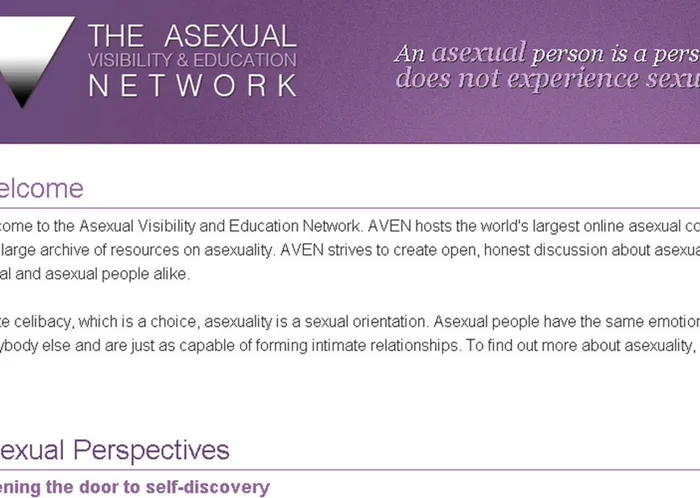Being happy without sex

Website screenshot Website screenshot
Paris - Julien has had girlfriends, it's just that he has never felt any desire for them. Men don't do it for him either.
Instead, the 27-year-old Frenchman says he has found happiness by coming out as asexual.
It may seem odd in a country known for love and seduction. But according to studies on the subject, people who have no or little sexual appetite could make up one percent of the global population.
That equates to hundreds of thousands of people in France alone and a newly-formed association is attempting to raise awareness of the issue with the country's first Asexuality Day on Friday.
“I learnt that I was asexual by watching a TV programme one evening,” Julien, a computer engineer from central France who would only give his first name, told AFP over the phone.
Before that, “I didn't feel normal, and so I completely suppressed it,” he said, adding he had had a girlfriend with whom he had sexual intercourse, but only to please her rather than himself.
It was not until he discovered asexuality existed that he started consulting specialist web forums. That led to him meeting an asexual girl with whom he is now in a happy, sexless relationship.
Asexuality is still largely misunderstood, particularly in countries where sex is splashed all over magazines, films and on television, and very few studies have been done on the subject.
Paul, vice president of the Association for Asexual Visibility (AVA) which is organising the awareness day, explained that it is different to abstinence.
“Society presents sex as something that is obligatory... What is of concern to us is that absence of sexuality or desire be considered as a disorder, a lack of freedom, due to psychological factors or a strict education,” he told AFP.
“Asexuality is a form of sexuality. It belongs to the diversity of human sexuality and it's way more important to recognise its existence and validity than to try and criticise.”
On one popular web forum on the subject, desperate, confused, sympathetic and positive comments abound from asexuals.
“I had buried my emotions for many years due to almost inexistant desire,” says one man on www.asexuality.org, who only identifies himself as “Empatic” from the southern city of Lyon.
“I met a woman around five months ago, and I fell in love... But there is no sexual desire and I can feel she is distancing herself even though it is hard for her as she loves me deeply. What suffering. I cry with rage.”
According to Paul, many asexuals get into relationships with other asexuals - like Julien - or fall in love with so-called “sexuals”, in which case it can be difficult. Some of these couples end up having open relationships.
Pioneer sexologist Alfred Kinsey touched upon asexuality in the late 1940s when he created a scale where zero was exclusive heterosexuality and seven exclusive homosexuality.
Asexuals, though, were classed in a separate, “X” category, and Kinsey found that a larger proportion of women were asexual than men.
After that, studies on the subjects went quiet until Anthony Bogaert, a professor at Brock University in Canada, published an extensive study on the issue in 2004, suggesting around one percent of the population was asexual.
Since then, the author of Understanding Asexuality has published other studies on the subject, as have others.
“There is more evidence of pre-natal hormonal influences having some sort of permanent effect that makes one more pre-disposed to being asexual or heterosexual or gay than there is for having atypical levels of hormones in adulthood,” he said.
After years of studying the subject, Bogaert says asexuals can have a tough time finding their place in society.
“There is some evidence that gay and lesbian people are viewed more positively by average heterosexual people than asexual people,” he said.
“But it's probably also the case that average asexual people can stay in the closet more comfortably than average gay and lesbian people.”
The term started entering the mainstream at the beginning of the noughties, with the emergence of the Internet, which made it easier for asexuals to find each other and exchange experiences.
It has since gathered strength, and since 2010, an international asexual awareness week has been organised every year, with educational projects taking place in several countries such as the United States.
But this is the first time that a special day for asexuality has been organised in France, although AVA says it will be low-key.
Asexuals have been asked to send in personal contributions such as poems that will be published on Tumblr: http://journeeasexualite.tumblr.com/. - AFP